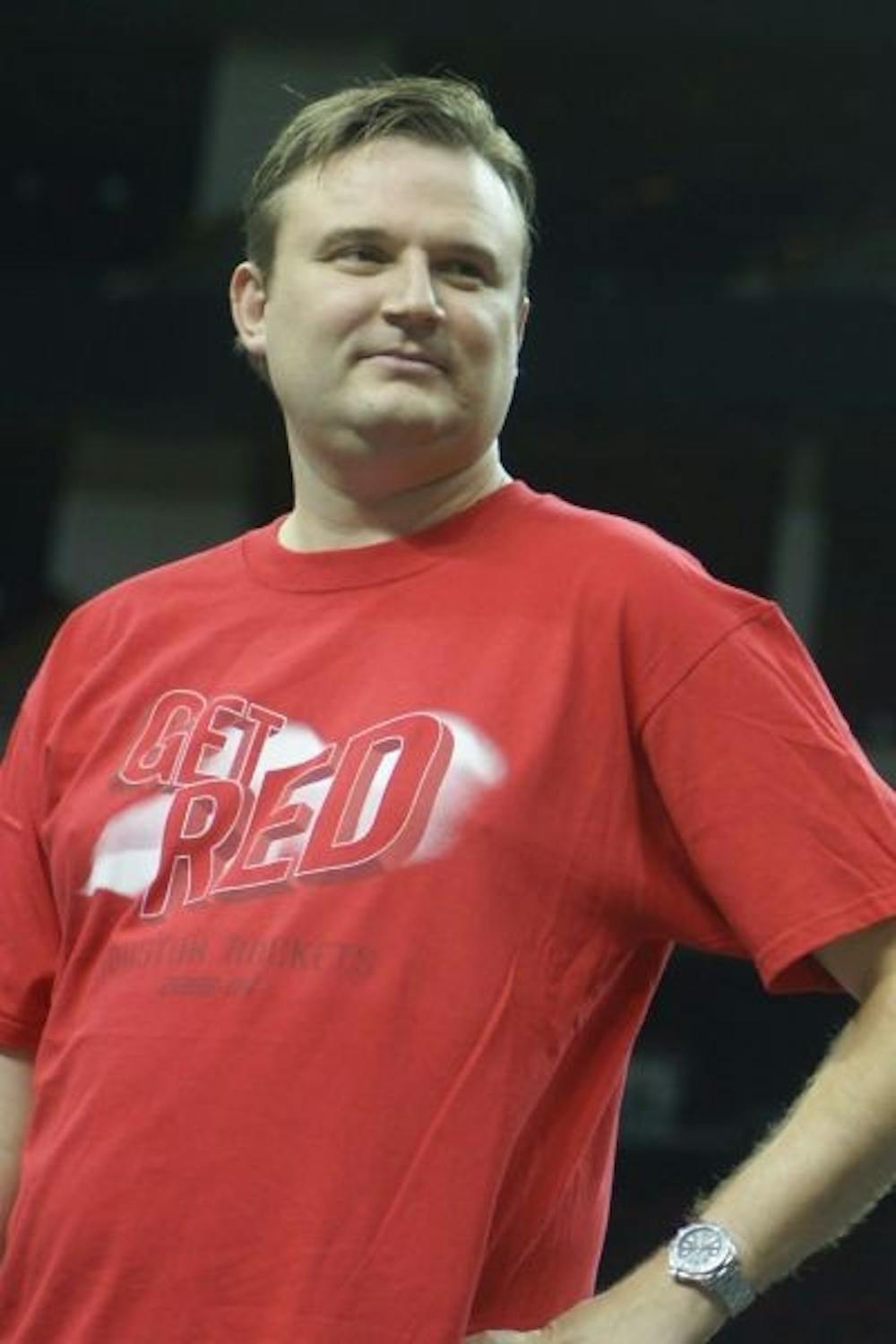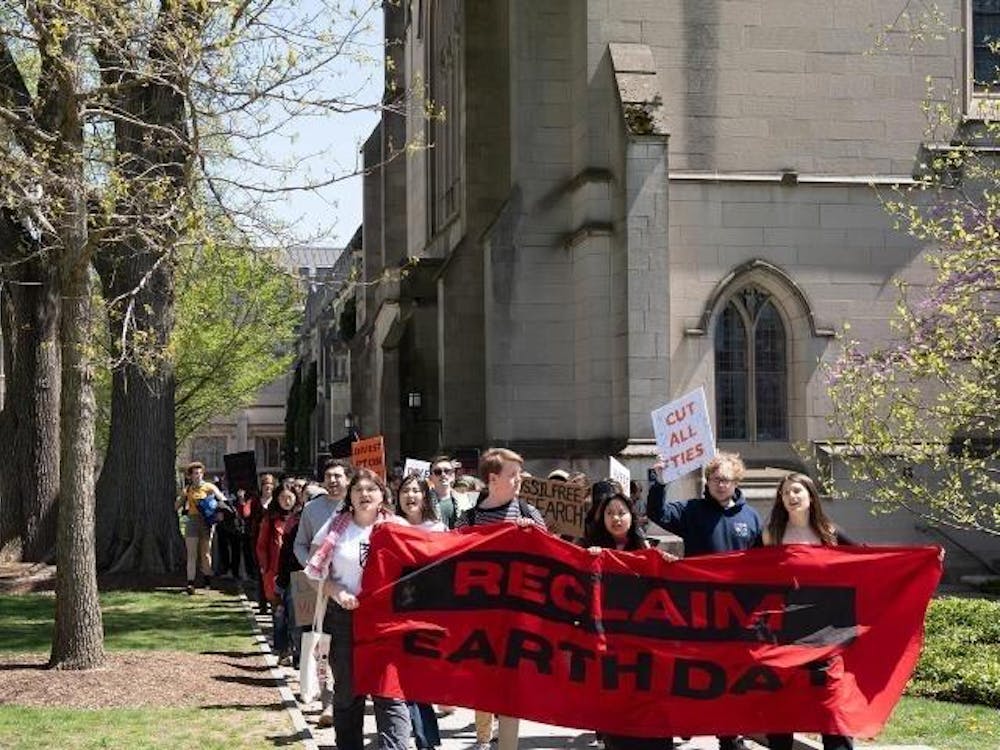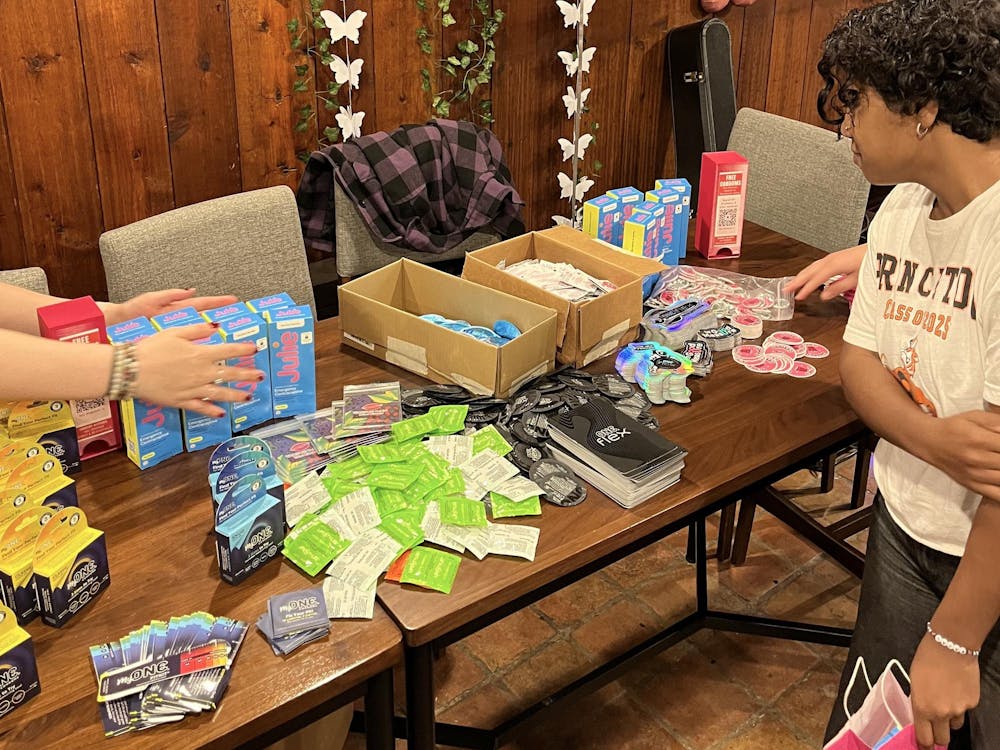The past few years have brought renewed focus on the intersection between sports and politics, from Colin Kaepernick’s national anthem protest to Megan Rapinoe, co-captain of the U.S. Women’s National Soccer Team, calling out President Trump. But while many fans celebrate these players using their voices to stand up against injustice, often those in power, including leagues and the media, have sought to uphold a barrier between sport and politics. The NFL and U.S. Soccer banned kneeling during the anthem after Kaepernick’s and Rapinoe’s protests.
On the media side, multiple ESPN hosts have faced controversy for being perceived as too political. After the Charlottesville attack in 2017, Jemele Hill was criticized, including by the White House, for tweeting that Trump was a white supremacist. Hill left ESPN last year to write at The Atlantic. Last summer, Dan Le Batard also faced backlash for speaking out against Trump’s racism, this time in the wake of Trump saying “send her back” in reference to Congresswoman Ilhan Omar. Le Batard also called out ESPN for its apolitical model, saying “we here at ESPN don’t have the stomach for the fight. We don’t talk about what is happening unless there is some sort of weak, cowardly sports angle that we can run it through.”
But throughout all of this, one league has stood out as particularly progressive: the NBA. The foremost figures of the league, such as the Golden State Warriors’ head coach Steve Kerr and Los Angeles Lakers star LeBron James, have spoken out strongly against Trump, police brutality, and other social issues. But now the NBA finds itself at a crossroads of an international political controversy, and it is struggling to react.
Last week, Houston Rockets general manager Daryl Morey posted just a seven-word tweet that turned the league upside down: “Fight for freedom, stand for Hong Kong.” The fallout from China has been swift. State-run television has stopped airing preseason games, and the Chinese government has strongly criticized the league. The NBA has scrambled to respond.
The NBA did not discipline Morey for his statement, even as China pressured them to fire him, and that is important. But they also took many days to come out and say that. Their first response was to put out two separate statements, one in English and one in Chinese. The first said that the offense Morey’s comments caused in China was “regrettable,” though he had a right to say it. The second said the league was “extremely disappointed in the inappropriate comment.” There cannot be any clearer demonstration of the intersection of sports and politics than for the NBA to tell one thing to its American fans, many of whom support Hong Kong, and another to its audience in China.
While the NBA delayed an official follow-up and backlash grew in response, players were put in front of cameras and reporters while executives, owners, and league officials were nowhere to be seen. So while those responsible for the controversy got to hide away, players were put between a rock and a hard place, having to choose between either speaking their mind and risking blowback from their teams or staying silent and appearing to side with the Chinese government, possibly against their own values. The league took the decision away from players anyway — when reporters asked Rockets stars James Harden and Russell Westbrook if they still felt free to speak about political and social issues, a spokesperson said they would only answer basketball questions. In other words, keep politics out of sports.
But politics in sports is nothing new; last week was the 51st anniversary of Tommie Smith and John Carlos’ demonstration on the medal stand at the Olympics, when they raised their fists to protest racial injustice. In the 1936 Olympics, Jesse Owens’ dominance in track and field was a direct rebuke to Hitler’s regime. The NFL is political when it has military flyovers before every game and when teams require their players to stand for the anthem. Sports are not played in a vacuum; athletes leave the court or the field and live among the rest of us. LeBron’s house was vandalized with racist graffiti. Michael Bennett, a football player for the New England Patriots, was tackled by police. They cannot and should not pretend as if they are not affected by politics, as we all are. Sports journalists cannot and should not put on blinders and plug their ears about political news just because they primarily cover sports. Just like everyone else has a responsibility to engage with this political moment, those in sports also have the right to speak their minds.
“Politics” is not some abstract term, some definable thing we can cordon off in one corner of society. “Politics” encompasses everything in our lives, and touches everything we do. The current situation in Hong Kong is not a minor issue happening across the globe, but a fundamental struggle for their rights. People often quote Dr. Martin Luther King’s “injustice anywhere is a threat to justice everywhere,” but rarely feel required to honor its meaning. Daryl Morey tried to. Colin Kaepernick tried to. Leagues should stop hiding behind a disingenuous stance of apoliticism and use their power to do the right thing. Perhaps the NBA has significant financial interests in expanding into China, but at some point, something has to outweigh money. If pursuing those business interests require that they turn a blind eye to misconduct by the government and suppress players and executives from voicing their views on important issues, then what good are the “values of the NBA” that commissioner Adam Silver said “travel with” the league wherever it goes?
Values are not context-dependent. Values don’t change when you cross a border. If a league holds a set of values, they should uphold them even and especially when they come into conflict with their financial interests. If they don’t want to be guided by something higher than money, they should not pretend as if they are, and they certainly should not require their personnel to act according to the league’s views even in their personal capacity.
Politics has never been separate from sports, and it never should be. Athletes are the people with some of the most power to affect change, and media the best able to amplify that, and our society would be better off if they were free to do so.
Julia Chaffers is a sophomore from Wellesley, Mass. She can be reached at chaffers@princeton.edu.










